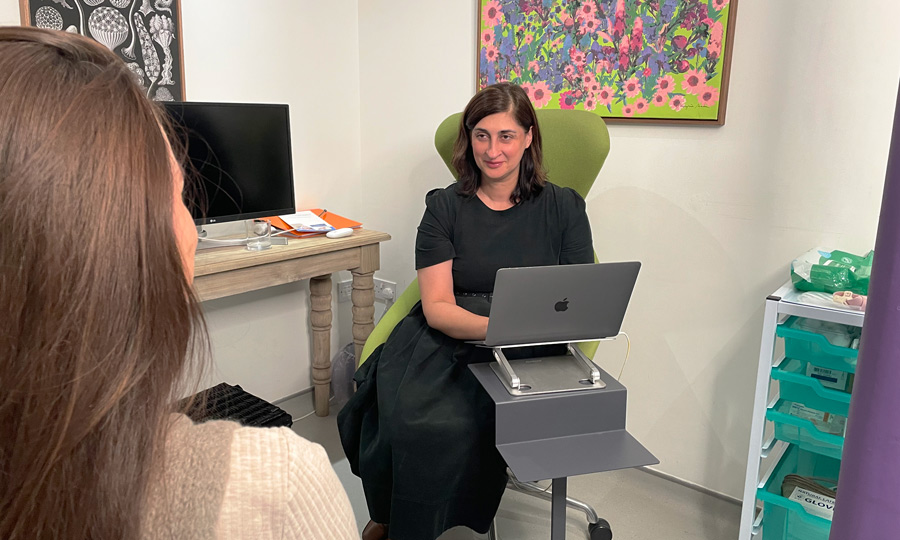
Patient Case Study – Perimenopause, Chronic Fatigue And More






We are pleased to share with you a case study* which demonstrates an example patient journey for an individual who came to us with symptoms of chronic fatigue, perimenopause, and adrenal fatigue. We hope it will provide you with insight into what a typical patient with these symptoms can expect from a comprehensive consultation.
We’d like to introduce you to a 50 year old female patient, who we first met in January 2024. She came to us after a very stressful period in her life, self-reporting burnout, poor sleep, as well as chronic pain issues. She was also experiencing a flare-up of chronic fatigue syndrome. At her first hour long consultation, we explored various aspects of her life and health, and discovered she was also suffering with moderate PMS symptoms. She was also describing brain fog, difficulty with word capture, weight gain, hair loss, and poor memory.
Patient information
Dr Sandhu’s initial impression was that the patient had HPA axis dysfunction leading to adrenal fatigue. She was also describing symptoms related to perimenopause, as well as chronic fatigue which was linked to previously having glandular fever.
The inflammation triggered by her HPA dysfunction was also affecting her brain gut axis, likely leading to neuroinflammation and a dysfunctional immune system.
Dr Sandhu recommended the following tests for this patient, based on the information provided in the initial consultation:
The test results provided a wealth of information that allowed a carefully structured treatment plan to be created. Results showed:



After careful consideration of test results and analysis of the information provided in the consultation, Dr Sandhu diagnosed the patient with:
Agreed treatment goals:
Initial management:
Prescriptions
Supplements
Our patient came back for her first three month follow-up.
Even though we are still very early in her patient journey, she is already reporting significant improvements. She was managing to exercise without crashing which she attributed to LDN, had recently returned from an adventure trip where she had managed to walk 24,000 steps per day with steep climbs! The patient was more motivated to change her life. Her brain clarity was improving. Sleep was still disrupted but this could have been mainly due to her not having started one of her hormone prescriptions.
On her repeat blood tests, we saw that her adrenal marker and reproductive hormone levels had improved. She will continue with all her recommended prescriptions and supplements until her next follow-up appointment.
In addition, we added a protocol for histamine intolerance as she developed severe allergic reactions to insect bites following her travels.
We will next be following up with this patient in a further six months.
*Some of the details in this case study have been changed to protect patient identity.